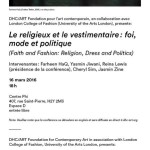“Death of a Gadfly: An Interdisciplinary Examination of the Trial and Execution of Socrates” — Special Issue of Mouseion
CALL FOR PAPERS
Mouseion: Journal of the Classical Association of Canada is pleased to announce a Call For Papers for an upcoming Special Issue, Death of a Gadfly: An Interdisciplinary Examination of the Trial and Execution of Socrates, guest-edited by John Harris (Associate Professor, History and Classics, University of Alberta) and Kathrin Koslicki (Professor and Tier 1 Canada Research Chair, Philosophy, University of Alberta).
Click here to download full details of CFP
Many questions persist today concerning the circumstances surrounding Socrates’ trial and execution as well as his life and the substance of his philosophical views. How and why was Socrates brought to trial? Why did the Athenian jurors, who were after all members of the world’s first democracy, find him guilty? Were the official charges against Socrates in fact trumped up? Was the real motivation behind his conviction political? Why did Socrates refuse to accept the opportunity to escape execution and instead submit to a verdict which both he and his friends thought unjust? Would we not expect Socrates of all people to refuse to carry out a legal injunction which he considered immoral?
In a time when the continued importance of the humanities within the academy is constantly under attack, it is especially crucial to convey to those working outside of our own specialties that engagement with a momentous historical event –even one that took place in ancient Athens over two thousand years ago– can nevertheless have an immeasurable impact on how we interpret and react to urgent challenges facing citizens of democratic societies today. The enigmatic and controversial figure of Socrates provides the perfect foil through which we can evaluate how individuals perceived as subversive and potentially threatening (e.g., for moral, religious, political or cultural reasons) have been, and ought to be, treated by their respective communities, especially when these communities pride themselves on their alleged adherence to democratic principles. To appreciate the contemporary relevance of Socrates’ trial and execution, it is useful to compare his treatment at the hands of the Athenians to interestingly similar recent incidents which particularly resonate with us (e.g., the assassinations of Dr. Martin Luther King and Malcolm X or the recent controversy involving Edward Snowden).
This proposed volume intends to explore these and other questions connected to Socrates’ trial and execution. Our topic invites an interdisciplinary approach, since an informed evaluation of whether the Athenians were justified in their condemnation of Socrates requires not only an examination of Socrates’ alleged philosophical position, but also an appreciation of his historical, political and cultural milieu. To this end, we welcome article submissions from scholars working in a variety of disciplines, including (but not limited to) Classics, History, Philosophy, Political Science, and Religious Studies, who can contribute to an interdisciplinary examination of Socrates’ trial and execution.
Submission Instructions. The submission deadline is December 31, 2016. Authors are requested to submit their papers according to the following guidelines. Papers must be (1) less than 7500 words long (excluding notes and references) and prepared for anonymous refereeing; (2) in pdf file format; (3) sent as an email attachment to the email addresses given below; (4) the subject line of the submission email should include the key-phrase “Socrates Volume Submission”; (5) the submission should include a cover page with a return email address, the author’s name, affiliation, paper title, and short abstract. All submissions will receive email confirmation of receipt. If your submission does not soon result in such an email confirmation, please send an inquiry to the guest-editors. For additional detailed submission guidelines, please consult the “Notes to Contributors” at http://www.mun.ca/mouseion/Submissions/. All submissions and correspondence concerning this Special Issue should be directed to the guest- editors, John Harris and Kathrin Koslicki at jpharris@ualberta.ca and kathrin.koslicki@ualberta.ca.
Aims of the Journal. Mouseion aims to be a distinctively comprehensive Canadian journal of Classical Studies, publishing articles and reviews in both French and English. One issue annually is normally devoted to archaeological topics, including field reports, finds analysis, and the history of art in antiquity. The other two issues welcome work in all areas of interest to scholars; this includes both traditional and innovative research in philology, history, philosophy, pedagogy, and reception studies, as well as original work in and translations into Greek and Latin.


